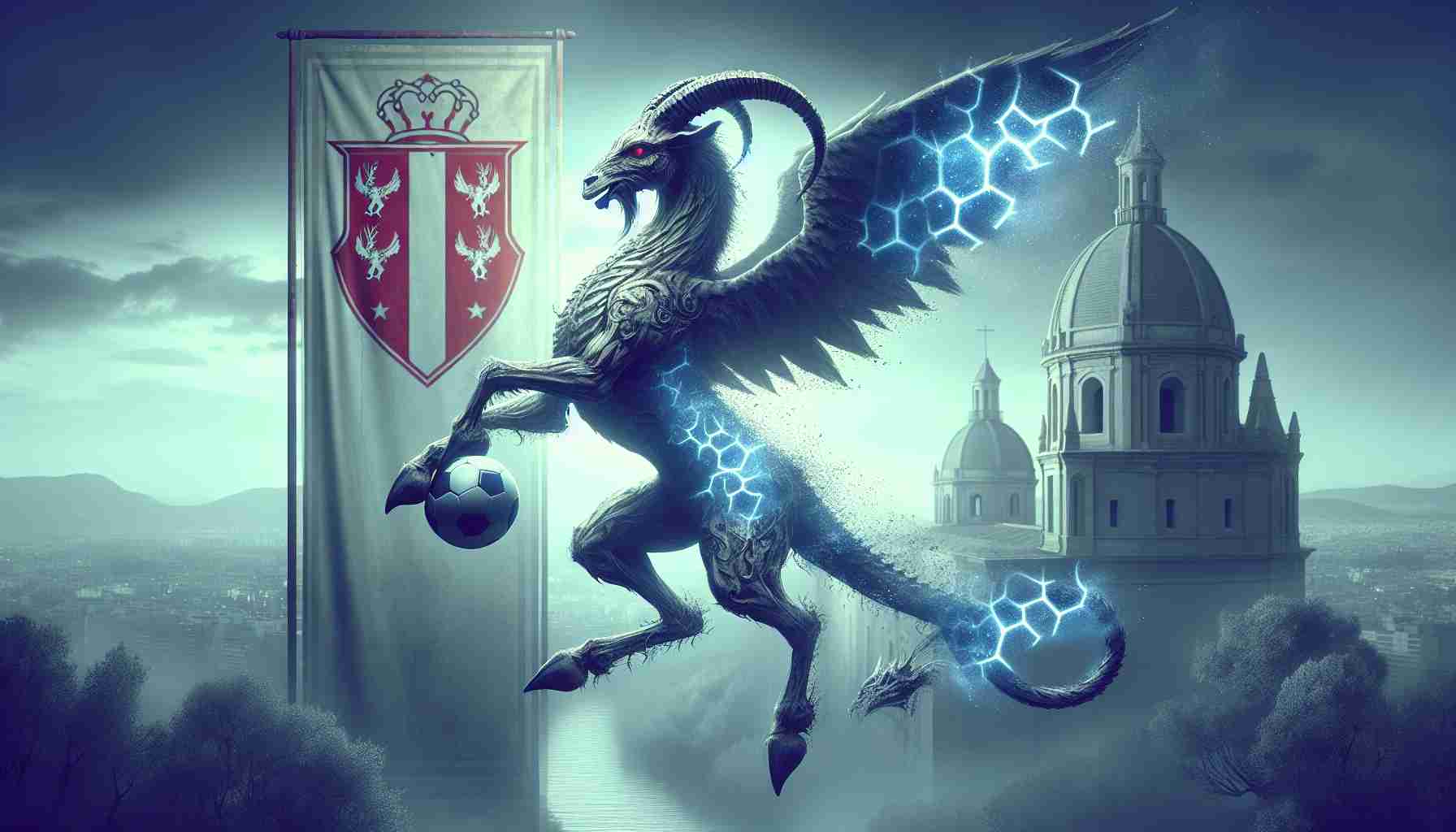- Kike and Luis Pérez, key figures at Real Valladolid, have become scapegoats for the team’s challenges despite their dedication.
- Kike Pérez, nurtured at Valladolid, faces accusations of underachievement stemming from misinterpreted confidence.
- His brother Luis’s candid remarks highlighted tensions within the fanbase, revealing a split between loyalty and critique.
- Both players have departed or are set to leave Valladolid, overshadowed by vocal critics.
- The article underscores that the real issue is the volatile nature of fandom, where support can quickly turn into blame.
- Ultimately, the Pérez brothers’ legacy is their steadfast commitment to football, despite the turbulence surrounding them.
Every football team has its scapegoats, figures caught in the swirling blame for failures beyond their control. At Real Valladolid, this season’s undesirables are no strangers: Kike and Luis Pérez. Yet, how did these dedicated athletes, both etched into the heart of supporters, find themselves at the center of controversy?
Picture Kike Pérez, a talented player nurtured from his early days with Valladolid’s promises. His potential was never in question, yet whispers of underachievement danced around him, a burden perhaps heavier than any tackle. Some saw arrogance where others saw doubt. Regardless, Kike never needed to prove more than giving his all on the field.
His brother Luis, a professional through and through, endures the storm with similar resilience. His recent comments might have sparked outrage, but they resonated with a raw honesty about the game’s harsh realities. Whether perceived as missteps or truth bombs, they uncover an uncomfortable divide—supporters, once unified, torn between loyalty and critique.
Tragically, Kike has departed for new horizons, and Luis may follow. They join a procession of departed players who walked through the club’s backdoor, leaving only echoes of their service. Ironically, their critics linger, voices louder than their contributions ever were.
The real villains? Not these dedicated athletes. Rather, it’s the fleeting nature of fandom, where devotion turns to disdain at the drop of a hat. Amidst these shifting allegiances, perhaps the true heroes are those who rise above the noise, embracing their flaws and celebrating their humanity.
In the end, passion and critique coexist, each feeding into the same relentless cycle. For Kike and Luis Pérez, the legacy lies not in misplaced blame but in their unyielding dedication to the sport they love.
Inside the World of Scapegoats: What Real Valladolid’s Story Teaches Us About Football Fandom
How-To Steps & Life Hacks for Football Players Facing Criticism
1. Stay Focused on Personal Performance: Concentrate on what you can control—your performance. Regular training, setting personal goals, and self-reflection are key.
2. Develop Mental Toughness: Engage in mental strength training. Techniques can include visualization, meditation, or working with a sports psychologist to remain unfazed by criticism.
3. Engage Positively with Fans: Use social media wisely to connect with supporters and share your side of the story without harming your professional image.
4. Seek Constructive Feedback: Talk to coaches and peers to gain constructive criticism, differentiating it from the noise of blame.
5. Embrace Professional Development: Improve skill sets through workshops and additional training to minimize legitimate criticisms.
Real-World Use Cases of Handling Criticism
Many professionals in various sports have faced criticism and emerged stronger. For instance, Gareth Bale, criticized during his tenure at Real Madrid, demonstrated resilience by focusing on his international career with Wales. Similarly, coaches like José Mourinho often face public scrutiny but showcase adaptability and strategic resilience.
Market Forecasts & Industry Trends in Football
The football market is projected to reach $3.5 billion by 2025, with increasing investments in player development and tech-driven performance analytics. Companies are leveraging AI for talent scouting and player assessments, which could change how players like Kike and Luis are evaluated in the future.
Reviews & Comparisons: The Scapegoat Phenomenon
Compared to other teams, Real Valladolid has followed a pattern seen in clubs with limited budgets, where youth and lesser-known players often become scapegoats. Clubs like Newcastle have faced similar cycles, where player replacements occur alongside fan rebuke.
Controversies & Limitations
Scapegoating can adversely affect player morale and career longevity. The pressure can lead to rash decisions, such as transfers or PR missteps. Long-term effects on players’ mental health can be detrimental.
Features, Specs & Pricing: The Player Transfer Matrix
The transfer value of players like Kike and Luis Pérez is affected by multiple factors, including age, potential, current form, and fan perception. Market valuations fluctuate with these dynamics, affecting contract negotiations.
Security & Sustainability in Football
Sustainability is becoming a core tenet, with eco-friendly stadiums and carbon-efficient operations gaining traction. For player sustainability, leagues are now focusing on wellness programs and health initiatives to support mental and physical health.
Insights & Predictions
The emphasis on youth academies signals a potential shift towards nurturing home-grown talents, reducing reliance on expensive transfers. Clubs are likely to adopt more transparent communication channels with fans to manage expectations and mitigate blame culture.
Tutorials & Compatibility
Young players need resources to manage both physical and emotional strains. Tutorials on career management, public relations, and mental health come highly recommended alongside coach-led training.
Pros & Cons Overview
Pros:
– Exposure to high-pressure situations can build resilience.
– Scapegoating can spur personal growth and skill enhancement.
Cons:
– Negative impact on mental health.
– Strain on player-fan relationships.
Actionable Recommendations
– Clubs: Implement player management systems that include mental health support and effective communication training.
– Fans: Engage constructively, understanding that athletes are human and individual performances are swayed by many factors.
– Players: Focus on career longevity through skill development and emotional resilience strategies.
For more insights on football management and player development, check resources from FIFA and UEFA.
